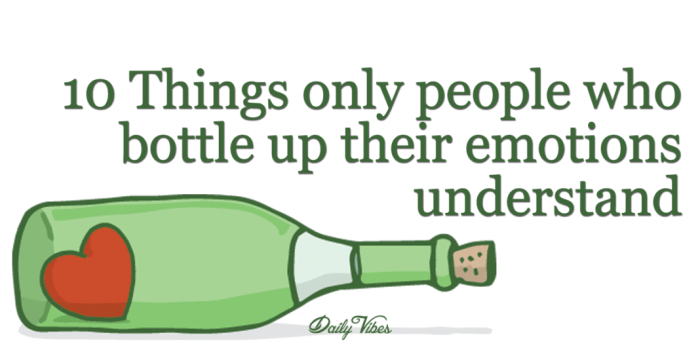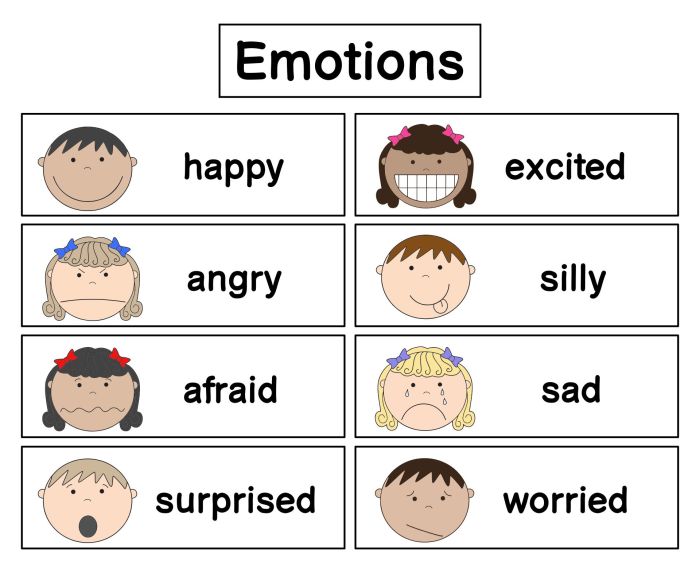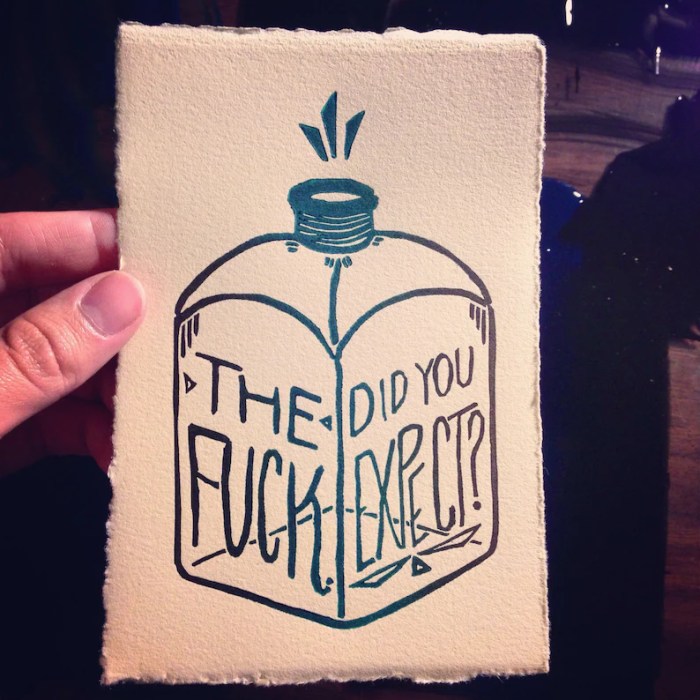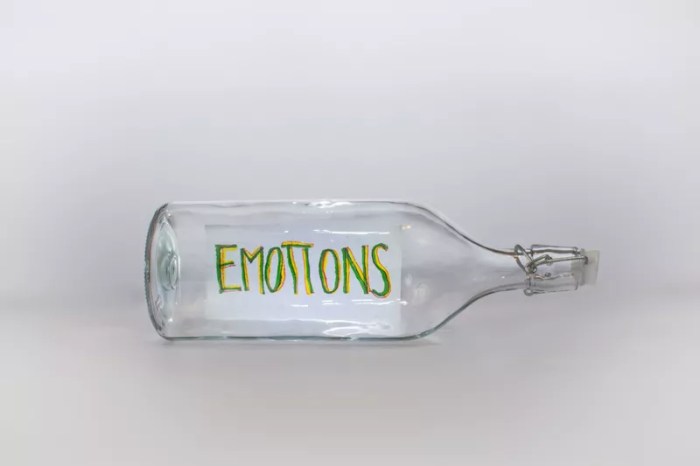Embark on an introspective journey with our captivating Do I Bottle Up My Emotions Quiz. Delve into the depths of your emotional landscape and uncover the hidden truths that may be hindering your well-being. This quiz is not merely an assessment; it’s a transformative experience that empowers you to break free from the shackles of emotional suppression.
Throughout this quiz, you’ll encounter thought-provoking questions designed to illuminate your emotional bottling habits. By honestly answering each question, you’ll gain valuable insights into the root causes of your suppression and its impact on your mental and physical health.
Defining Emotional Bottling: Do I Bottle Up My Emotions Quiz

Emotional bottling is the practice of suppressing or hiding one’s emotions, often due to fear of judgment, conflict, or vulnerability. It can have detrimental consequences for both mental and physical health.
Situations that may lead to emotional bottling include:
- Experiencing overwhelming emotions that seem difficult to express or manage.
- Feeling ashamed or embarrassed about certain emotions.
- Fearing negative reactions or consequences from others if emotions are expressed.
Identifying Signs of Emotional Bottling

Emotional bottling is the act of suppressing or concealing one’s emotions, often leading to negative consequences for mental and physical health. Recognizing the signs of emotional bottling is crucial for addressing the issue and promoting emotional well-being.
Physical Manifestations
- Headaches and body aches
- Digestive problems (e.g., stomach pain, constipation)
- Fatigue and sleep disturbances
- Increased heart rate and blood pressure
- Weakened immune system
Psychological Manifestations
- Anxiety and depression
- Mood swings and irritability
- Difficulty concentrating and making decisions
- Social withdrawal and isolation
- Low self-esteem and feelings of inadequacy
Behavioral Manifestations
- Avoidance of situations or people that trigger emotions
- Excessive use of substances (e.g., alcohol, drugs)
- Self-harm or thoughts of self-harm
- Aggressive or passive-aggressive behavior
- Emotional outbursts or “bottling up” emotions for extended periods
Causes of Emotional Bottling

Emotional bottling is a common coping mechanism that can have various underlying causes. Cultural, societal, and personal factors can contribute to the suppression of emotions.
Are you one of those people who often keep their emotions to themselves? If you’re wondering if you bottle up your emotions, consider taking the quiz. It’s a simple assessment that can give you insight into your emotional health. And if you’re interested in learning more about Spanish, you can check out the unidad 3 leccion a answer key . Whether you’re looking to improve your emotional well-being or your Spanish skills, these resources can help you achieve your goals.
Cultural Influences
- Cultural Norms:Some cultures emphasize stoicism and emotional restraint, discouraging the open expression of emotions, especially negative ones.
- Gender Roles:Societal expectations can pressure individuals to conform to gender stereotypes, which often involve suppressing emotions that are deemed inappropriate for their gender.
- Stigma:Negative perceptions and judgments associated with certain emotions can make people hesitant to express them openly, leading to emotional bottling.
Societal Influences
- Social Pressure:The fear of being judged, ridiculed, or ostracized can prevent people from expressing their emotions authentically.
- Time Constraints:In fast-paced societies, individuals may feel pressured to prioritize productivity and efficiency, leaving little time for emotional processing.
- Lack of Emotional Support:Limited access to supportive relationships or environments can make it difficult for individuals to share their emotions and seek help.
Personal Factors
- Trauma:Traumatic experiences can lead to emotional suppression as a defense mechanism to avoid overwhelming emotions.
- Low Self-Esteem:Individuals with low self-esteem may fear that expressing their emotions will make them vulnerable or expose their weaknesses.
- Cognitive Avoidance:Negative beliefs or thought patterns can lead people to avoid processing or expressing their emotions.
Effects of Emotional Bottling
Suppressing emotions can have detrimental consequences for both mental and physical well-being. Research has consistently shown that individuals who bottle up their feelings are more likely to experience a range of negative outcomes.
Mental Health Impacts, Do i bottle up my emotions quiz
- Increased Stress and Anxiety:Bottling up emotions leads to chronic stress, as the unresolved emotions continue to weigh on the mind. This can trigger anxiety and make it difficult to cope with everyday challenges.
- Depression:Suppressing negative emotions, such as sadness and anger, can contribute to depression. When emotions are not expressed, they can fester and lead to feelings of hopelessness and worthlessness.
- Difficulty in Relationships:Emotional bottling can damage relationships. When individuals are unable to express their feelings, they may withdraw from others or become irritable and distant.
Physical Health Impacts
- Cardiovascular Problems:Research has linked emotional bottling to an increased risk of cardiovascular disease. Suppressed emotions can lead to elevated blood pressure, heart palpitations, and other heart-related issues.
- Weakened Immune System:Studies have shown that bottling up emotions can suppress the immune system, making individuals more susceptible to illness and infection.
- Gastrointestinal Problems:Emotional suppression has been associated with gastrointestinal issues, such as stomach pain, constipation, and irritable bowel syndrome.
Strategies for Breaking the Cycle
Breaking the cycle of emotional bottling requires conscious effort and the development of healthy coping mechanisms. Here are some practical strategies to help individuals overcome this challenge:
Identify and Acknowledge Emotions
The first step towards breaking the cycle is to become aware of and acknowledge your emotions. Pay attention to your thoughts, feelings, and bodily sensations. Allow yourself to experience emotions without judgment or suppression.
Express Emotions Healthily
Find healthy ways to express your emotions. Talk to a trusted friend, family member, or therapist. Engage in activities that allow you to express your emotions creatively, such as writing, painting, or music.
Develop Communication Skills
Learn to communicate your emotions clearly and effectively. Practice assertiveness and boundary-setting to ensure that your needs are met without being overly aggressive or passive.
Practice Self-Care
Engage in self-care activities that promote emotional well-being. Exercise, get enough sleep, eat a healthy diet, and connect with loved ones. Taking care of yourself physically and mentally will provide you with the resilience to cope with difficult emotions.
Seeking Professional Help

When emotional bottling becomes a chronic pattern that significantly impairs daily functioning, seeking professional help is crucial. Therapists and counselors are trained to provide a safe and supportive environment where individuals can explore their emotions, identify the underlying causes of their bottling, and develop coping mechanisms.
Role of Therapists and Counselors
Therapists and counselors can help individuals with emotional bottling in various ways:
- Creating a safe space:Therapists provide a non-judgmental and confidential environment where individuals can openly express their emotions without fear of criticism or shame.
- Exploring underlying causes:Therapists help individuals understand the root causes of their emotional suppression, such as past experiences, childhood trauma, or societal expectations.
- Developing coping mechanisms:Therapists teach individuals healthy ways to manage their emotions, such as mindfulness techniques, communication skills, and stress reduction strategies.
- Challenging negative thoughts:Therapists help individuals identify and challenge negative thoughts and beliefs that contribute to emotional bottling.
Q&A
What are the signs that I may be bottling up my emotions?
Difficulty expressing emotions, physical tension, avoidance of social situations, irritability, and difficulty sleeping are common signs of emotional bottling.
Why do people bottle up their emotions?
Cultural norms, fear of judgment, lack of coping mechanisms, and personal beliefs can all contribute to emotional suppression.
What are the consequences of bottling up my emotions?
Emotional bottling can lead to mental health issues such as anxiety, depression, and relationship problems. It can also manifest physically as headaches, digestive issues, and weakened immune function.